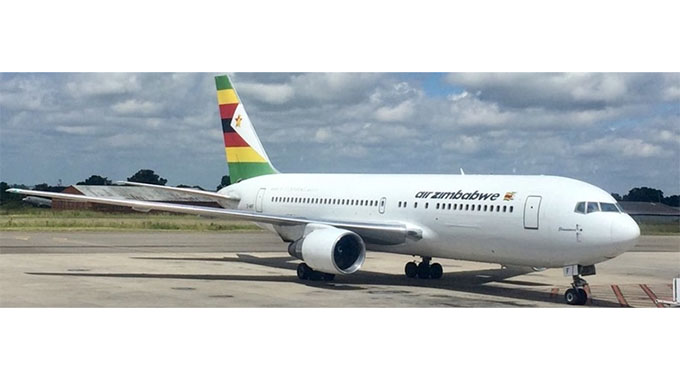Zimbabwe committed to aviation safety

Herald Reporter
Air Zimbabwe has invited the European Aviation Safety Agency (EASA) to audit its operations as a way of giving the organisation access to first hand experience of its activities following a ban of the airline from European Union (EU) airspace.
The airline is taking a leaf from President Mnangagwa’s administrative thrust of openness in governance and not hiding governance issues, which has won the validation of a United Nations agency.
Zimbabwe is open to best international practices in all sectors as a prerequisite for an upper middle income society by 2030.
Despite the setback of the airline’s ban from the European airspace, it is willing to exhaust all regulatory channels to restore permission to fly into all parts of the world, as the country is being configured to take a front row seat in international trade.
Other airlines to have been banned are from countries like Russia, which shows it might not necessarily be a safety issue.
Though the decision might not necessarily be safety concerns as mentioned, Air Zimbabwe is keen for international scrutiny as a way of showing off confidence in its systems.
In a statement, Air Zimbabwe said: “Pertinent and urgent to attaining the EASA TCO (Third Country Operator Authorisation) is the computerisation and seamless integration of all the systems and training of personnel in the organisation in order to ensure efficient flow of operations and compliance.
“Therefore, there is need for mobilisation of resources, both financial and human in 2022, towards implementation of the requisite processes to satisfy EASA requirements.
“The airline to invite EASA to conduct an on-site audit in the third quarter of 2023. The successful closure of the EASA audit will pave way for the airline to write a request to the EU for the lifting of ASL (Air Safety List) ban.”
Air Zimbabwe said its strategic plan was centred, key amongst other pillars, on route expansion into international destinations, thus the EASA certification is very crucial.
The aviation industry is a high risk, high consequence activity which is highly regulated and it is very dynamic as a result of the continual improvement in systems and processes.
The EU came up with EASA in order to regulate operators outside its airspace to safeguard the good safety record of the continent.









Comments